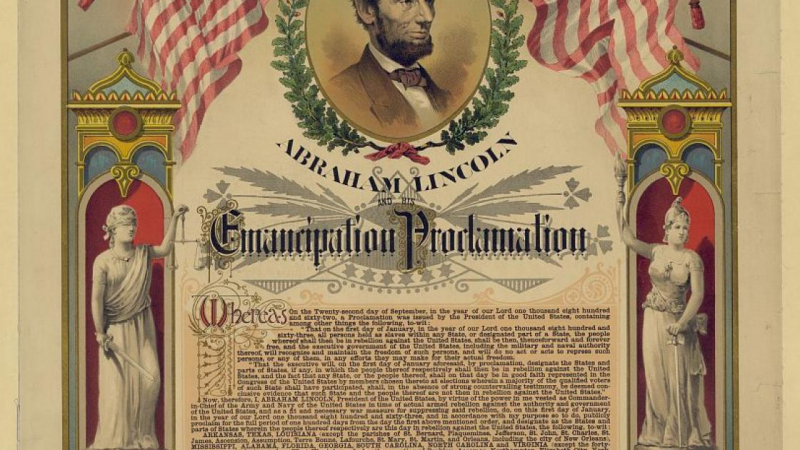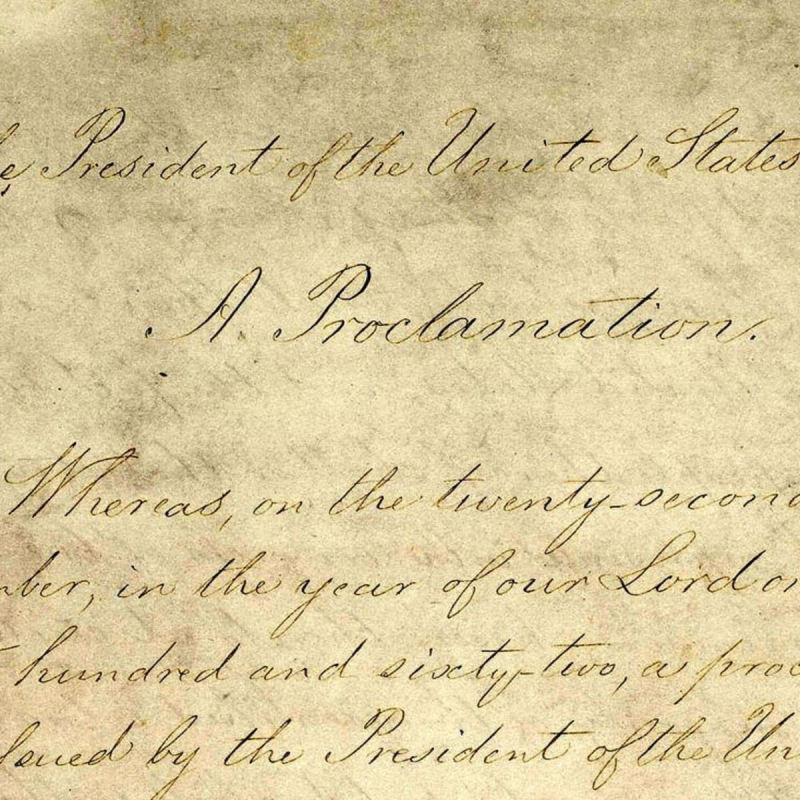The Emancipation Proclamation
As a lawyer and politician, Abraham Lincoln was aware that the constitution maintained slavery in the states where the populace appeared to favor it, even though he believed it to be a repugnant evil. Lincoln stated that he had "no purpose, directly or indirectly, to interfere with slavery in the States where it exists" in his first inaugural address. The political landscape started to shift with his election as president, the Secession Crisis, and the Civil War. The Union experienced some disheartening defeats in the early months of 1862 after a string of successes. Although they were not directly active, the South's sizable slave population was nonetheless assisting the locals in several other ways. The case for emancipation as a necessary military measure was gathering support. Lincoln called a meeting of his cabinet to debate the Emancipation Proclamation in the middle of 1862. However, as the Union soldiers were being routed, William H. Seward, Lincoln's secretary of state, convinced him to delay issuing the proclamation. The quick action, according to Seward, would appear to be a desperate measure.
At the Battle of Antietam on September 17, 1862, Union soldiers forced the Confederates to retire. Rather than military success, the North achieved a tactical and moral triumph. Lincoln sent a preliminary warning that he would decree the emancipation of all slaves in any state that did not put an end to its rebellion against the Union by January 1, 1863, five days later, on September 22, 1862. On the historic day of January 1, 1863, the proclamation went into force, allowing 3.1 million of the 4 million slaves in the country to be freed. The fact that slaves held in the border states of Delaware, Maryland, Kentucky, and Missouri were not freed under the new law is important. Lincoln feared that if all slaves were granted universal emancipation, these states would break away from the Union and join the Confederacy.












